Claudio Monteverdi
Story
Born in Cremona in 1567, Claudio Monteverdi served at the court of the Dukes of Mantua from the early 1590s until 1612, when he moved to Venice as maestro di cappella at the basilica of St. Mark, a position he retained until his death in 1643. His importance as a proponent of the so-called seconda prattica, the new concerted music characteristic of the early Baroque, is unquestioned, as is his pre-eminence in the development of the new form of opera that sprang from the combination of music and rhetoric in the art of Italian monody.
The earliest opera to retain a place in modern repertoire is Monteverdi’s L’Orfeo, a dramatic version of the story of the legendary Orpheus, the musician who sought to bring his beloved Eurydice back from the Underworld by the power of music. This was written for the court of the Duke of Mantua in 1607, with a libretto by Alessandro Striggio. A second opera of the period, L’Arianna, dealing with the fate of the Cretan princess Ariadne, deserted on the island of Naxos by the Athenian prince she had rescued, Theseus, is lost, although the famous Lament of Arianna survives both as a solo song and in the form of a madrigal. The words are by the Florentine nobleman Ottavio Rinuccini, who provided the text for the ballet Il Ballo dell’ingrate. Il Combattimento di Tancredi e Clorinda (The Combat of Tancredi and Clorinda), a setting of an episode in Tasso’s Gerusalemme liberata, allows Monteverdi to exhibit his newly developed stile concitato (agitated style), in an interpretation of ancient Greek philosophical principles expressed by Plato. To stile concitato is added stile molle (soft style) for humility, and stile temperato (moderate style) to represent that human emotional state. Monteverdi’s last two surviving operas are Il Ritorno d’Ulisse in patria (The Return of Ulysses to his Native Country), staged in Venice in 1640, and the final L’incoronazione di Poppea (The Coronation of Poppaea) of 1642, set in imperial Rome in the time of Nero, whose love for the courtesan Poppaea is the subject of the opera.
Monteverdi published a number of collections of songs and madrigals. Of these the Lament of Arianna has been mentioned, while the Combattimento di Tancredi e Clorinda was also published in a set of Madrigali guerrieri et amorosi (Madrigals of War and of Love), designed for singing without dramatic action. This particularly rich repertoire of vocal music includes the duet, also in the form of a five-part madrigal, Zefiro torna (Zephyr, turn), from the poet Petrarch and Ecco mormorar l’onde (Lo the murmur of the waves), a setting of Tasso. These and other songs and madrigals by Monteverdi were brought to modern attention by the French composer, teacher and musicologist Nadia Boulanger in memorable realisations and recordings in the 1940s.
Possibly as an advertisement of his varied abilities as a composer, Monteverdi wrote in 1610 a setting of the service of Vespers for the Blessed Virgin Mary in the modern style that would appeal to the officials of St. Mark’s in Venice. At the same time, perhaps with a view to possible employment in the more conservative papal service in Rome, he wrote a six voice Mass setting in the old style. The Vespers offer a dramatic and colourful exploitation of the possibilities of the new style in a work of great variety and interest well suited to the spacial effects available to performers in the great basilica of St. Mark, with its galleries and traditions of writing for contrasted groups of performers spacially separated.
Details
- Composer
- Claudio Monteverdi
- Date of birth
- May 16, 1567
- Nationality
- Italian
- Albums
- 25
- Tracks
- 706
25 albums
-
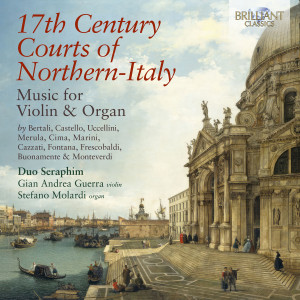
Tarquinio Merula, Claudio Monteverdi and 9 others
17th Century Courts of Northern-Italy Music for Violin & Organ
-

Claudio Monteverdi, Girolamo Frescobaldi and 5 others
Arias for Anna Renzi the First Opera Diva
-
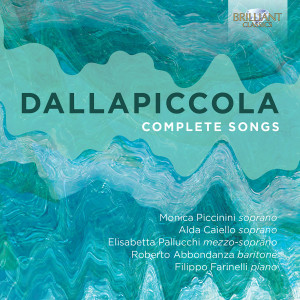
Francesco Cavalli, Claudio Monteverdi and 15 others
Dallapiccola: Complete Songs
-
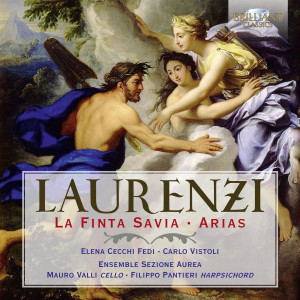
Claudio Monteverdi, Domenico Gabrieli and 4 others
Laurenzi: La finta savia, Arias
-
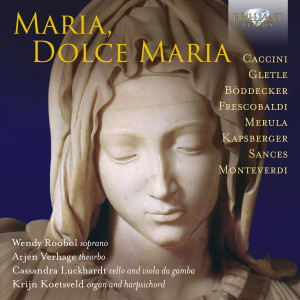
Tarquinio Merula, Claudio Monteverdi and 6 others
Maria, dolce Maria
-
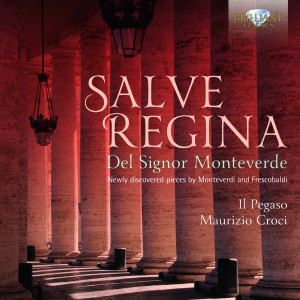
Claudio Monteverdi, Girolamo Frescobaldi and Bellerofonte Castaldi
Monteverdi & Frescobaldi: Salve Regina, Newly Discovered Pieces
-
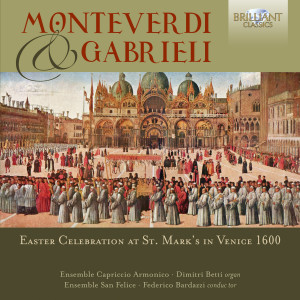
Claudio Monteverdi, Giovanni Gabrieli and Giovanni Paolo Cima
Monteverdi & Gabrieli: Easter Celebration at St. Mark's in Venice 1600
-
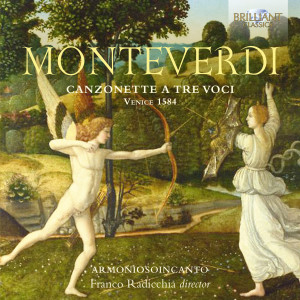
Claudio Monteverdi
Monteverdi: Canzonette a tre voci, Venice 1584
-
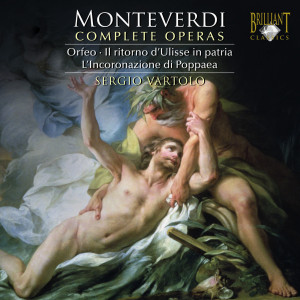
Claudio Monteverdi
Monteverdi: Complete Operas
-
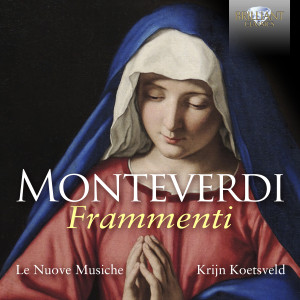
Claudio Monteverdi
Monteverdi: Frammenti
-
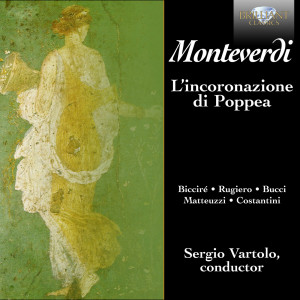
Claudio Monteverdi
Monteverdi: L'Incoronazione di Poppea, SV 308
-
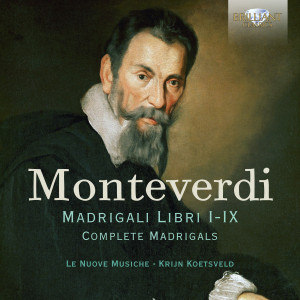
Claudio Monteverdi
Monteverdi: Madrigali Libri I-IX
-
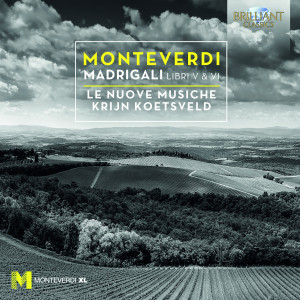
Claudio Monteverdi
Monteverdi: Madrigali Libri V & VI
-
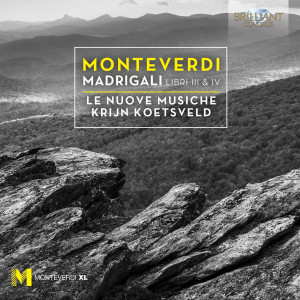
Claudio Monteverdi
Monteverdi: Madrigali Libro III & IV
-
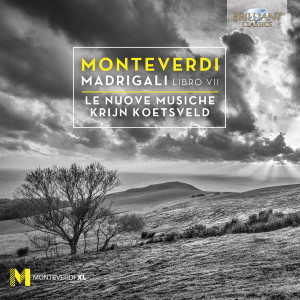
Claudio Monteverdi
Monteverdi: Madrigali libro VII
-
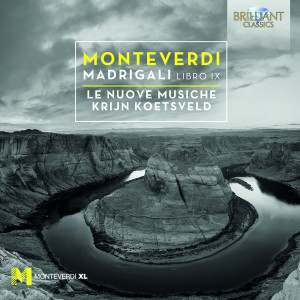
Claudio Monteverdi
Monteverdi: Madrigali, Libro IX
-
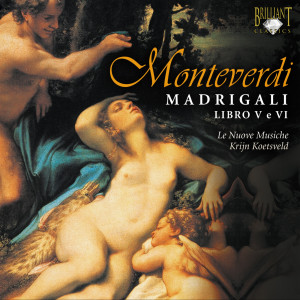
Claudio Monteverdi
Monteverdi: Madrigals, Books 5 & 6
-
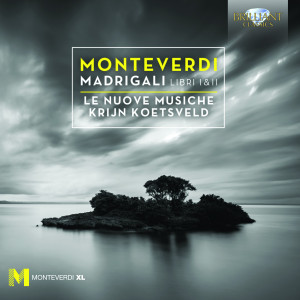
Claudio Monteverdi
Monteverdi: Madrigals, Libri I & II
-
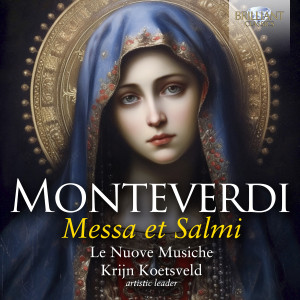
Claudio Monteverdi
Monteverdi: Messa et Salmi
-
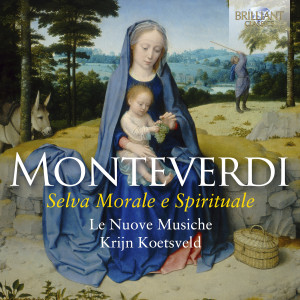
Claudio Monteverdi
Monteverdi: Selva Morale e Spirituale
-
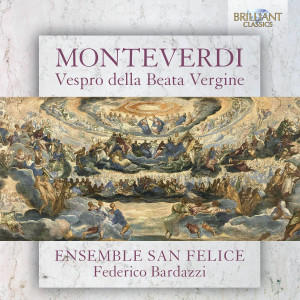
Claudio Monteverdi
Monteverdi: Vespro della Beata Vergine
-
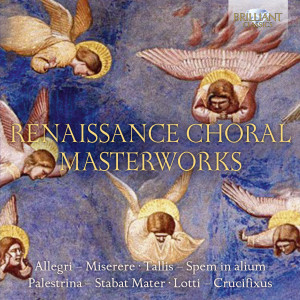
Gregorio Allegri, Thomas Tallis and 17 others
Renaissance Choral Masterworks
-
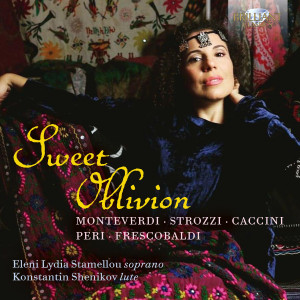
Claudio Monteverdi, Girolamo Frescobaldi and 4 others
Sweet Oblivion: Monteverdi, Strozzi, Caccini, Peri, Frescobaldi
-
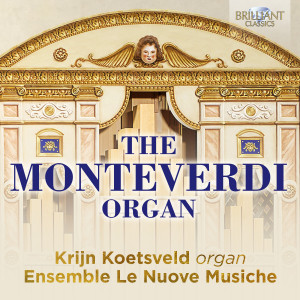
Tarquinio Merula, Claudio Monteverdi and 2 others
The Monteverdi Organ
-
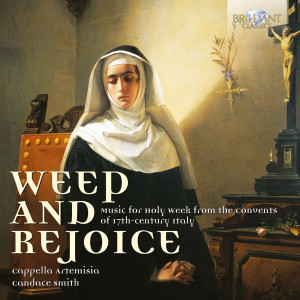
Anonymous, Claudio Monteverdi and 17 others
Weep & Rejoice, Music for the Holy Week
